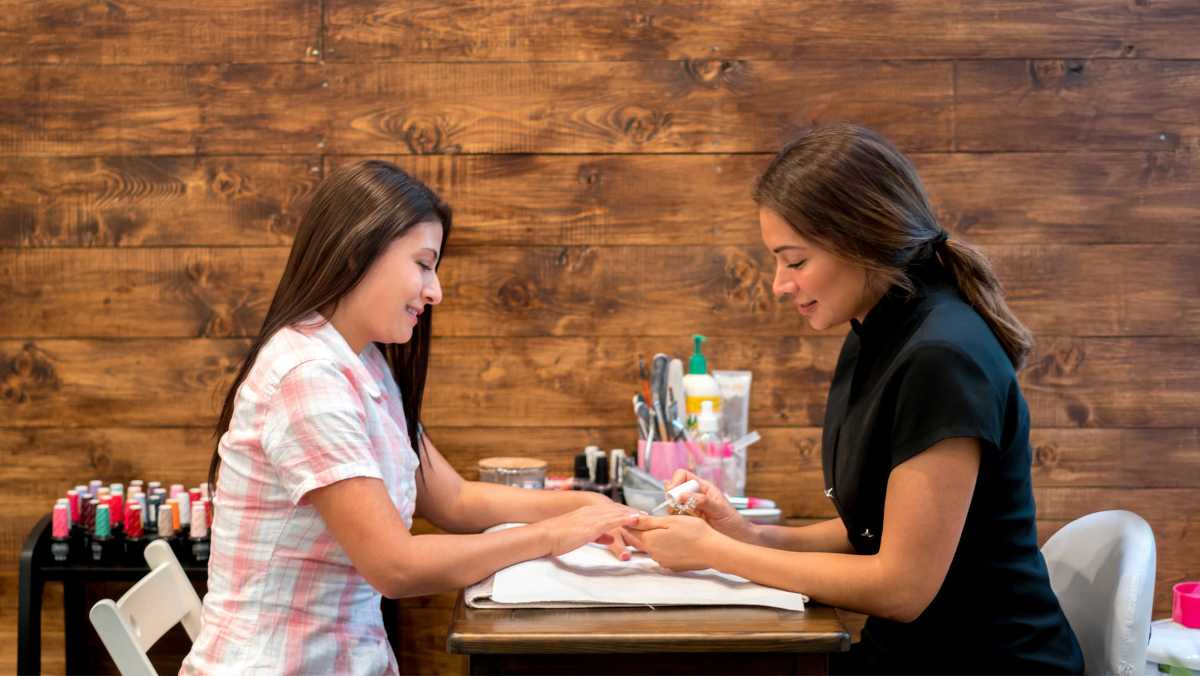Starting your own nail studio

- Henk Herkink
- The basis
- Edited 3 October 2025
- 5 min
- Starting
Are you planning to open your own nail studio? There are a few important things you need to arrange. For example, complying with health and safety regulations. Or finding out whether you can start a studio at home. Check all the issues you need to consider and be well-prepared to start as an independent nail stylist.
What do you need to do and arrange when starting a business?
Find out with the 'Personal to-do list' on Business.gov.nl. Answer the questions and see the steps that are important in your situation.
When starting your own business, all entrepreneurs need to arrange things such as registration with KVK, insurance, taxes, and bookkeeping. This article explains what other issues are relevant to you when starting as a nail stylist.
Market research
The Business Register shows that there was a rapid growth in the number of nail salons between 2021 and 2025.
Number of nail stylists in the Netherlands on 1 January (2018-2023)
| Year | Number of nail stylists on 1 January |
| 2021 | 9,850 |
| 2022 | 10,606 |
| 2023 | 11,406 |
| 2024 | 12,445 |
| 2025 | 13,094 |
Source: KVK Handelsregister
Getting beautiful nails done is popular. This is partly because of social media. Some trends go viral worldwide, for example on TikTok. As there are more and more nail studios, it can be difficult to get a foothold. Therefore, research whether your idea has a chance of succeeding. Making a business plan will help you do this. Among other things, you will gain insight into who your customers and competitors are.
Once you have this clear, the next step is to think about why customers would choose you. What makes your salon special? For instance, the atmosphere, personal attention, price, or accessibility. Then you are ready to take the next steps such as choosing and furnishing premises and coming up with your business name and logo.
Location
Many people starting out in the business start by working out of their home. The benefits of running your nail studio at home are that you cut travel time, travel expenses, and extra rent. One of the cons is that it can blur the lines between your business and your personal life.
Before you start working from home, you should do these 3 things:
- Check the rules with your municipality: Do you have to report that you are starting a business from home? What do you need to look out for if you are going to remodel your home? And can you hang up a sign outside your home? Check the environment for your area for all the different rules.
- Check whether your mortgage agreement or lease allows you to start a business in or near your home.
- Extend your insurance coverage. Your home contents insurance and buildings insurance are for private property and the house itself. They do not cover damage to business assets and workspace
Visiting clients in their homes
You can also choose to provide your services in clients’ homes. When buying the equipment you need for your work, remember you will need to carry it with you. Also remember that you must follow health and safety requirements. These also apply when you go to clients’ homes.
Record your travel time and expenses. This information is useful for your tax return and timekeeping. You may be able to pay less tax if you can deduct expenses and are entitled to self-employment deductions.
Renting business premises
Are you going to rent a business unit? Make sure the space meets your clients’ needs. What is the atmosphere like? Is the property easily accessible by car, bike, and public transport? Make sure you know what the rental conditions are. Sometimes, for example, there are extra charges for electricity and waste. Often, you must also pay one- or two-months’ deposit. You will get this amount back at the end of the rental period if you leave the space in good condition. Before you sign the lease, check with your municipality whether you can start a nail salon on the premises.
Renting a chair
Chair rental involves a collaboration between two or more independent entrepreneurs. A beauty therapist or hairdresser together with a nail stylist, for instance. You work independently in the same business location. The advantage of this is that your clients have access to more than one service in the same place. You also share expenses such as rent and, for instance, purchase costs and marketing.
Glossary for business terms
If there are words on this page that you did not quite understand, check out this glossary for a simple explanation of business words and the English translations of Dutch terms.
Training
To become an independent nail stylist, you do not need any special training. But clients do want to know if you are doing your job properly. Recently, the NAIL (in Dutch) was set up. This list shows that you meet certain quality requirements. To get on this list, you have to meet the professional profile as mentioned in NLQF level . You must also have an approved (in Dutch).
Costs for starting out
As a starting nail stylist, you need professional equipment. You will soon spend a few thousand euros on this. Think of:
- nail table, chairs
- UV/LED table lamp
- dust extraction
- tools such as a file, cutter, and pusher
- gel and acrylic products, primer, glue, base, topcoat, degreaser
- stencils, brushes, decoration material
- apron, gloves, towels, and face masks
- steriliser for tools
You also have costs for your business that keep coming back, such as costs for:
- cash register, digital payments, and bank
- software, such as a customer system
- website
- advertising on social media
- administration and insurance
Rules and regulations
As a nail stylist, you will also have to follow other rules and regulations.
Health and safety regulations
As a nail technician, you may work with harmful substances. If you inhale them or they come into contact with your skin, you may suffer health problems. Protect yourself and your clients against these health risks. For instance, wear gloves and a facemask. Ask the supplier of your products what to look out for. Solvents may be released when using a product. So, you should ensure adequate ventilation and an extraction system in your workplace. Also because of the dust released when filing nails.
You can download the Dutch-language brochure (Safety information for nail products), from the website of the Nederlandse Cosmetica Vereniging (Dutch Cosmetics Association). This has information and advice on workplace health and safety. Do you have staff or zzp’ers working in your company? Then you must provide safe working .
TPO banned
Since 1 September 2025, it is illegal to use products containing the chemical TPO in your salon. TPO is found in gel polish, for example. TPO causes the gel to change from liquid to solid under UV or LED lighting. You are not allowed to sell products containing TPO either.
Playing music in your salon
Do you play music in your salon? Then you need a licence (permission) for music . You can find the costs and conditions at from BumaStemra and Sena (category: Care).
Mistakes and accidents
Does something go wrong during a treatment and you harm your client? Then you will be liable for the costs. You can protect yourself against this risk by taking out professional liability insurance.
Hours of operation
The Trading Hours Act states that your nail studio can be open Mondays to Fridays from 06:00 to 22:00. Do you want to have other opening hours? Contact your local council to apply for permission.
General information for starting entrepreneurs
Apart from all the above, starting entrepreneurs also have to deal with the following:
• Business administration and bookkeeping
• Choosing a name for your business
• Deciding your hourly rate
• Privacy regulations


